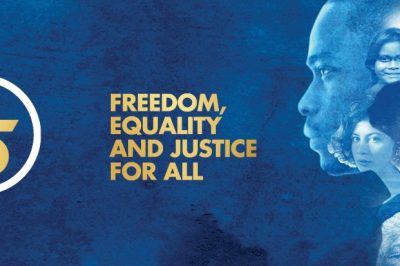As the 10th of December marks the 75th Human Rights Day, this document explores the advancements of various complex UNHCR obstacles.
UNHRC has become a vital component in advancing global human rights norms. The council has worked to create strong standards and guidelines to protect people, especially in areas where there are active conflicts, by passing resolutions and developing strategic plans.
The UNHRC has actively collaborated with over 50 countries in the last ten years, significantly improving the state of human rights circumstances worldwide.
The council’s effectiveness is largely based on its special rapporteurs, impartial investigators entrusted with documenting and reporting on abuses of human rights. This method fosters a culture of responsibility and openness by facilitating a comprehensive awareness of problems ranging from the right to health to freedom of movement.
The United Nations Human Rights Council now has 44 rapporteurs on its panel, all carrying out crucial tasks to uphold its dedication to unbiased research and reporting.
The UNHRC has skillfully coordinated international cooperation to handle humanitarian catastrophes. Acting as a hub for concerted actions, the council has enabled the delivery of help and backing to many countries facing hardship, most notably Gaza, where immediate humanitarian relief is necessary.
The council’s efforts have exceeded national boundaries; several nations dealing with humanitarian issues have received assistance and support.
The impression of selectivity in the UNHRC’s initiatives is a divisive one. Its impartiality and universality are questioned.
Also Read: Denmark makes legislation against burning religious texts
Using veto power and diplomatic constraints makes it more difficult to take prompt, decisive action, especially in areas like Gaza that need immediate attention.
The UNHRC, which has 47 members, functions amid a precarious power dynamic occasionally hampered by diplomatic complexities.
The UNHRC has passed more than 120 resolutions covering a wide range of human rights concerns, demonstrating how difficult it may be to balance geopolitical sensitivities.
The terrible circumstances in Gaza are characterized by significant obstacles that affect the civilian population’s ability to get basic needs. There are limits on the amount of food, water, and medical supplies that can be provided. Therefore, the world community must act quickly.
There is an acute humanitarian crisis affecting over 2 million people in Gaza right now, which highlights how urgent it is to provide their basic requirements.
Given the gravity of the situation in Gaza, prompt and decisive action is required. To provide long-lasting remedies, the UNHRC must address the crisis’s underlying causes in cooperation with other countries, going beyond the urgent relief operations.
As a formal appeal to action, the UNHRC has highlighted the urgency of a swift and coordinated response to the dire humanitarian situation in Gaza. The humanitarian catastrophe that is still going on in Gaza is an alarming reminder of our shared obligation to protect human rights, underscoring the need for constant communication, collaboration, and advocacy on the global scene.
An International Relations graduate, with a keen interest in diverse areas of IR; diplomacy, global politics & human rights.








